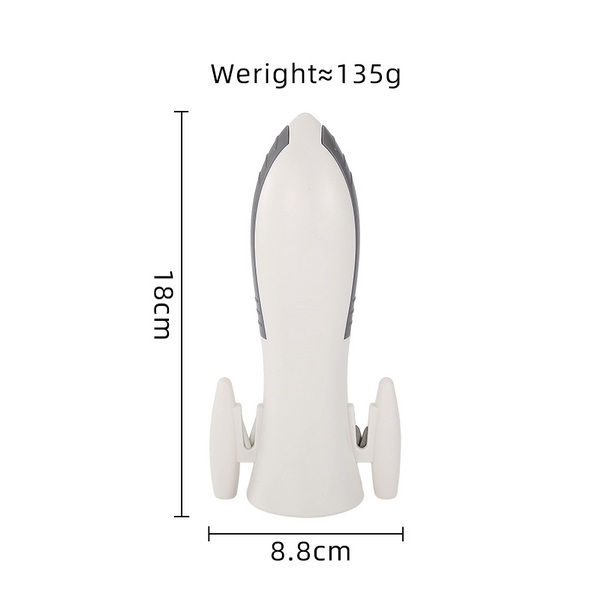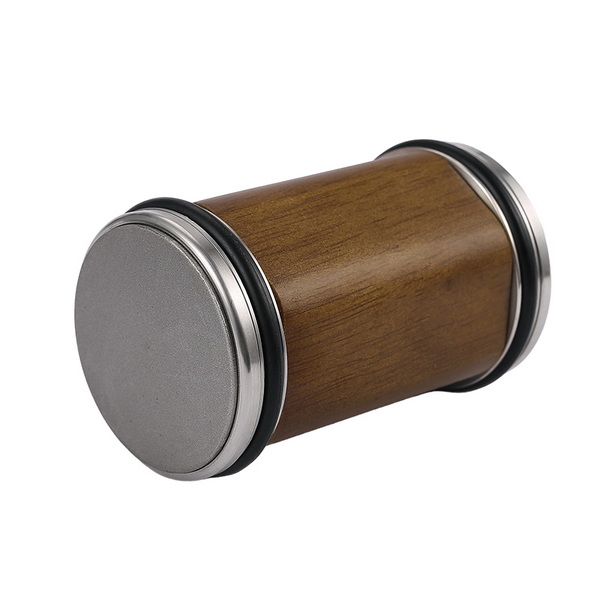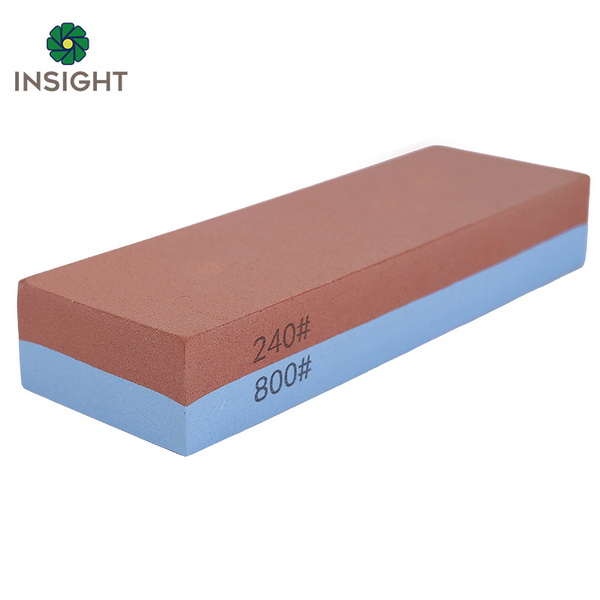

Views: 222 Author: Ella Publish Time: 2025-05-23 Origin: Site








Content Menu
● The Tradition of Knife Sharpening in Spain
● Leading Knife Sharpener Manufacturers in Spain
>> 2. Lacor - Drei Electric Knife Sharpener
>> 3. The Sharpening Shop, Barcelona
>> 4. Florentine Kitchen Knives
● Innovations and Technologies in Spanish Knife Sharpening
● The Cultural and Practical Importance of Knife Sharpening in Spain
● How to Choose the Right Knife Sharpener
● Sharpening Techniques and Best Practices
● Services and Education in Spain
● FAQ
>> 1. What types of knives can Spanish knife sharpeners handle?
>> 2. Are there traditional knife sharpening services still available in Spain?
>> 3. How do electric knife sharpeners in Spain compare to manual sharpening?
>> 4. Can I learn knife sharpening skills in Spain?
>> 5. What should I consider when buying a knife sharpener from Spain?
Spain has a rich tradition in cutlery and knife sharpening, blending centuries-old craftsmanship with modern technology. As culinary arts and professional cooking continue to thrive, the demand for high-quality knife sharpeners has increased. This article explores the top knife sharpener manufacturers in Spain, highlighting their products, craftsmanship, and contributions to the industry. We will also discuss the cultural significance of knife sharpening in Spain, the latest innovations, and provide useful insights for consumers and professionals alike.

Knife sharpening in Spain is more than just a practical skill; it is a cultural heritage. Historically, itinerant knife sharpeners, known as *afiladores*, traveled through cities and towns, offering sharpening services with a pedal-powered grinding wheel mounted on a motorbike. This tradition, once common in urban centers like Madrid and Barcelona, is now becoming rare due to modernization and changing lifestyles. However, some artisans and businesses continue to preserve and innovate this craft, ensuring that Spanish knife sharpening remains relevant and respected.
Founded in 1840 and located in Minglanilla, Cuenca, Cuchillería Sáez is a family-owned business with four generations of experience in knife making and sharpening. Known for their high-quality knives and sharpening tools, they combine traditional techniques with modern manufacturing to produce durable and effective sharpeners suitable for household and professional use.
Lacor is a prominent Spanish manufacturer offering the Drei electric knife sharpener, designed for heavy-duty use. This sharpener features a 3-stage sharpening system (coarse, fine, and polish) with diamond-coated rollers and a powerful 18W motor running at 2800 RPM. It is suitable for stainless steel and ceramic knives, including serrated blades, and is equipped with a magnetic base to collect metal shavings and a non-slip base for stability during use.
Located in Barcelona, The Sharpening Shop provides professional sharpening and blade repair services. Beyond manufacturing, they offer workshops and education on knife care, catering to both home cooks and professional chefs. Their holistic approach to sharpening emphasizes the importance of maintaining knives for longevity and performance. They serve some of Barcelona's finest restaurants and hospitality businesses, ensuring high standards in knife sharpness and care.
Though primarily a cutlery brand based in Barcelona, Florentine Kitchen Knives also focuses on bespoke knife sharpening and customization. Their offerings include a wide range of specialty knives with options for blade geometry, steel type, and handle design. Their commitment to craftsmanship extends to sharpening, ensuring each knife meets exacting standards for sharpness and usability.
Arcos is Spain's oldest and most prestigious knife manufacturer, with roots tracing back to 1745. Over nearly 300 years, Arcos has evolved from a small blacksmith forge into a fully mechanized production facility, crafting some of the finest knives and sharpening tools in Spain. Their commitment to innovation and sustainability is evident in their use of cutting-edge technology and environmentally friendly practices. Arcos' sharpeners are designed to maintain the sharpness and durability of their renowned blades, making them a trusted name in both domestic and professional kitchens.

Spanish manufacturers embrace both traditional hand sharpening and modern electric sharpening technologies. For example, Lacor's Drei sharpener uses diamond-coated rollers for efficient sharpening, combining speed and precision suited for professional kitchens. Meanwhile, artisanal shops like The Sharpening Shop blend craftsmanship with education to promote proper knife maintenance and sharpening techniques.
Electric sharpeners such as the SHARPAL 198H model incorporate a 3-stage sharpening process with coarse and fine diamond wheels followed by a ceramic stage for polishing. This ensures a razor-sharp edge without damaging the blade's temper, suitable for double-beveled straight edge and some serrated knives.
Additionally, innovative products like the Horl3 sharpener use magnetic blocks and diamond and ceramic discs to provide fast, uniform sharpening results. These devices are praised for their ease of use and precision, reflecting Spain's blend of tradition and modernity in knife care.
The role of the knife sharpener in Spain is deeply embedded in culinary culture. Sharp knives are essential for preparing traditional dishes like *jamón ibérico*, where precise slicing enhances flavor and presentation. Professional chefs rely on expert sharpening to maintain their tools, while home cooks benefit from accessible sharpening services that prolong the life of their knives.
Despite the rise of electric sharpeners and mass-produced tools, traditional sharpening remains valued for its precision and artistry. Some Spanish knife grinders continue to use pedal-powered wheels and hand stones, preserving a craft that requires skill and patience.
Knife sharpening is also a symbol of sustainability; sharpening extends the life of knives, reducing waste and the need for frequent replacement. Many Spanish manufacturers, including Arcos, emphasize environmentally friendly production and sharpening methods, aligning with global trends toward sustainability.
When selecting a knife sharpener, consider the following factors:
- Type of knives: Some sharpeners are better suited for European-style knives, others for Japanese blades or serrated knives.
- Sharpening method: Options include manual whetstones, handheld sharpeners, and electric sharpeners.
- Material compatibility: Ensure the sharpener can handle stainless steel, ceramic, or specialty steels.
- Ease of use: Some sharpeners require skill and time, while others offer quick, user-friendly operation.
- Durability and maintenance: Look for high-quality materials like diamond-coated discs for longevity.
Spanish manufacturers offer a variety of sharpeners catering to different needs, from heavy-duty electric machines to artisanal hand sharpening services.
Professional Spanish sharpeners often use a series of water stones with varying grit levels to restore knives to factory sharpness. For Western knives, the process typically starts with a coarse 250 grit stone, followed by refinement with a 1000 grit stone. Japanese blades may require further polishing on stones up to 12,000 grit to achieve a razor-thin edge. The final step usually involves stropping on leather with polishing compounds to remove any burrs and polish the edge.
Electric sharpeners offer convenience and speed but may not provide the same level of precision as hand sharpening. Therefore, many professionals recommend a combination of both methods: initial shaping with electric sharpeners and final honing by hand.
Businesses like The Sharpening Shop in Barcelona provide not only sharpening services but also educational workshops. These classes teach knife care, sharpening techniques, and maintenance, empowering home cooks and professionals to extend the life of their knives. Such initiatives help preserve the cultural heritage of sharpening while promoting practical skills.
Spain's knife sharpener manufacturers represent a unique blend of tradition and innovation. Companies like Cuchillería Sáez, Lacor, The Sharpening Shop, Florentine Kitchen Knives, and Arcos uphold the country's reputation for quality and craftsmanship in knife sharpening. Whether through artisanal hand sharpening or advanced electric machines, these manufacturers ensure that knives remain sharp, safe, and effective for both professional and home use. The cultural significance of knife sharpening in Spain continues to inspire artisans and chefs alike, preserving a vital craft in the modern culinary world.

Spanish knife sharpeners typically handle a wide range of knives including chef knives, serrated knives, hunting knives, pocket knives, and specialty blades. Some electric sharpeners are also compatible with ceramic knives.
Yes, although less common, traditional knife sharpening by itinerant sharpeners and specialized workshops still exist in cities like Madrid and Barcelona, preserving the cultural heritage of the craft.
Electric sharpeners like Lacor's Drei model offer faster and more consistent sharpening with multi-stage systems, while manual sharpening provides more control and is preferred by some artisans for delicate blades.
Yes, places like The Sharpening Shop in Barcelona offer workshops and classes for beginners and advanced learners to develop sharpening and knife care skills.
Consider the type of knives you own, sharpening method preference, compatibility with knife materials, ease of use, and the reputation of the manufacturer or service provider.